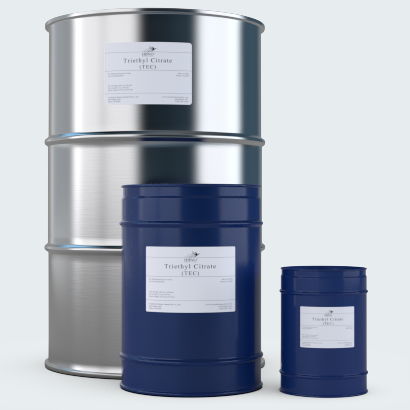
Triethyl Citrate (TEC) is a powerhouse in the realm of personal care, offering a plethora of benefits that cater to diverse beauty needs. Serving as a viscosity-increasing agent in cosmetic formulations, Triethyl Citrate is also recognized for its role as a solvent in perfumes and various beauty products. This versatile ingredient is gaining attention for its significant contributions to skin care, making it a key player in the formulation of various personal care items.
Triethyl Citrate: A Natural Marvel for Skincare
Derived from nature's agro resources, Triethyl Citrate stands out as a non-phthalate cosmetic ingredient with remarkable skincare properties. Boasting non-toxic, eco-friendly, and bio-degradable attributes, this ingredient is crafted from 100% renewable carbon sources, aligning with the demand for sustainable beauty solutions. Triethyl Citrate finds its application in personal care, health care, food and beverage, industrial applications, cleaners, and detergents.
Versatility in Formulations
Triethyl Citrate's versatility shines through its multifaceted applications. It functions as a solvent, diluent, and fixative for perfumers, gaining acceptance as an active ingredient in deodorants and an excellent choice for fragrance enhancement. In the pharmaceutical realm, it plays a pivotal role as a plasticizer in enteric-coated tablets, showcasing its adaptability across various industries.
In the realm of skincare, Triethyl Citrate is a go-to ingredient for formulating an array of products, including hand creams, foot balms, facial creams, sun care creams, exfoliation creams, facial moisturizers, anti-aging creams, and body lotions. According to studies its use extends to potentially enhancing the dispersion of UV filters in sunscreen, crucial for achieving the desired SPF levels.
The Making of Triethyl Citrate
Triethyl Citrate can be derived both naturally from plants or synthesized in laboratories. Typically, it is crafted through the esterification reaction between citric acid and ethanol, utilizing a catalyst, often sulfuric acid. This process leads to the formation of Triethyl Citrate, with water as a byproduct. The resulting compound undergoes purification to eliminate impurities, ensuring the production of high-quality Triethyl Citrate.
Real-Life Efficacy in Skin Treatment
The real-life efficacy of Triethyl Citrate takes center stage in the treatment of skin conditions, as evidenced by a study involving a novel lotion. This lotion, containing Triethyl Citrate, ethyl-linoleate, and g-peptide-10, demonstrated efficiency in possibly acting as an acne treatment.
In an open-label study involving 30 patients, the lotion was applied three times daily for eight weeks, with noticeable improvements observed in both Sartorius score grading system and inflammatory/non inflammatory lesion counts. This breakthrough lotion proved to be an effective and well-tolerated topical agent, either alone or in combination with other treatments, showcasing its potential without adverse side effects.
Triethyl Citrate: The Olfactory Ally
Beyond skincare, Triethyl Citrate finds utility as a liquid, oily active ingredient in deodorants. Studies show that its decomposition by the skin's bacterial flora into low-odor substances sets it apart, providing a refreshing alternative for body odor control. Additionally, Triethyl Citrate and its counterparts like tributyl citrate serve as softeners, particularly in hairsprays, and as emulsifiers for ointments and creams.
In conclusion, Triethyl Citrate emerges as a true gem in the world of personal care, offering a harmonious blend of efficacy, versatility, and sustainability. Its applications span various beauty products, making it an essential ingredient for those seeking innovative and effective solutions in skincare and fragrance.
Citation:
https://www.sciencedirect.com/science/article/abs/pii/S2212429221003278
https://onlinelibrary.wiley.com/doi/abs/10.1111/dth.12599
https://cosmileeurope.eu/inci/detail/16392/triethyl-citrate/

